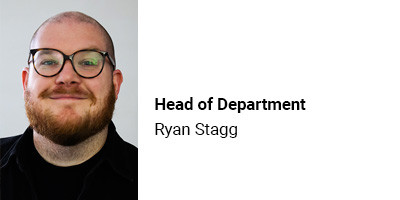Performance (Acting) BTEC
Qualification: National Extended Certificate in Performance (Acting) BTEC Level 3
During Year 1 you will study for the National Certificate, for Year 2 you will progress to the National Extended Certificate
Exam Board: Pearson; Specification
Course Entry Requirements: 4 in English Language GCSE. You must have a proven interest in performing, perhaps as a member of drama group / organisation or involved in drama at school. You may study any combination of Performing Arts Courses (Dance A level, Drama A level, Music A level, Music BTEC, Performance BTEC) in your programme if you wish.
Please make sure that you have understood the overall entry requirements to study at BHASVIC. These are available here and outline the GCSE grades you need to take up one of the Study Programmes at the college.
Length and size of qualification: 2 year single course
Timetable hours: 4.5 hours per week + rehearsal time
Assessment method: A combination of written and performed assessment
Course charges: There is an annual charge of £50 to assist with costs of attending performances and participating in workshops throughout the 2 years of this course. Bursaries and payment plans are available, please read Our Support Service for further information. Students starting September 2024 and after will not pay any charge for this course.
BHASVIC Department: Performing Arts
Head of Department: Ryan Stagg

Read our guide to BTECs at BHASVIC
What will I study?
BTEC Performing Arts is a practical course that is designed to support student skill development. With reflective practice at the heart of all that we do, A BTEC in Performance will empower students to understand themselves as a practitioner with the benefit of understanding performative growth.
The course is assessed without written exam and is a 50/50 balance between performance and written work.
| Year 1 | Unit 34 - Compulsory Unit | Skill Development | 50% Performance 50% Coursework |
| Year 1 | Unit 20 | Voice | 50% Performance 50% Coursework |
| Year 1 | Unit 26 | Physical Theatre | 50% Performance 50% Coursework |
| Year 2 | Unit 19 | Acting Styles (Naturalism) | 50% Performance 50% Coursework |
| Year 2 | Unit 3 - Compulsory Unit | Performance Workshop | 50% Performance 50% Coursework |
Is this course right for me?
You will need to have confidence in yourself as a developing actor and have an ability to participate in a range of practical acting workshops to develop skills and acting techniques. You will have to complete logs and complete lots of independent research over the 2 year course. The course goes well with any creative or humanities subjects.
Where next?
This course provides skills applicable to developing a career in the performing arts industry. You will also be able to progress on to a degree level course in Performing Arts or related fields. Many of the skills are transferable and can be applied to higher level study in many fields or in the world of work. Examples of related roles that students may undertake would include Actor, Stage Manager, Arts Administrator, Dramatherapist and Television Production Assistant. Useful websites to research careers and wider progression options could include Creative Skillset, All About Careers, The Apprenticeship Guide and Equity (career factsheets).
For more information or to ask any questions, please email performingarts@bhasvic.ac.uk
Apply View DepartmentLast year, 24 BHASVIC students went onto study Drama and Performing Arts degrees at 10 different universities
Many Drama & Performing Arts students choose an alternative route to study at a specialist Conservatoire such as the Guildhall School of Acting & Drama. Popular university destinations included Kingston, Bristol, Bristol UWE, Queen Marys’ London, Essex and Glasgow.
Students can study Drama & Performing Arts through a BTEC or an A level route at BHASVIC which are equivalent qualifications.
Should I study Drama and Performing Arts at degree level?
Picture yourself on stage or front of camera performing, or behind the scenes designing or directing? If you're considering a degree in drama or theatre studies, you'll first need to decide on the type of course you prefer.
If you're choosing a performance-based course, expect to attend an audition to showcase those theatrical talents.
Types of Drama and Performing Arts degrees
Some combine studying the history of theatre and reading and analysing plays with performance skills, while others are much more practical and performance-focused - think acting, musical theatre, costume design and stage management skills.
Students might study:
- Playwriting
- Devising and physical theatre
- Acting for stage
- Postdramatic performance: composed theatre
- Theatre making: scenography and technology
- New Shakespeares
- Performance: from ritual to spectacle
Entry Requirements
Useful to have
- Performing Arts
English
- Drama/ theatre studies
- English literature and language
Usually an audition is required
Top Universities for Drama and Performing Arts
Glasgow, Exeter, Birmingham, Sussex, Aberdeen, Essex
Warwick, Lancaster, Royal Central School of Speech & Drama – all very high student satisfaction scores
Leeds, Royal Conservatoire of Scotland, Arts University Bournemouth - all with top graduate prospects
Many of our students choose a combined degree - applications from our students have included:
- BA (Hons) Acting
- Certificate of Higher Education in Introduction to Acting
- Drama and English
Example entry requirements (please check):
A-Level/BTEC equivalents:
UEA Drama ABB
Royal Holloway Drama & Theatre Studies A,B,B-A,A,B
Derby Theatre Arts B,C,C-B,B,B
Why not try a foundation degree or higher apprenticeship?
Sheffield Hallam Drama and Performing Arts (Foundation) 48 UCAS Points
Drama training & Apprenticeships creativeaccess. org.uk
Some examples of Drama and Performing Arts -related degrees that our BHASVIC students have gone onto study in the past few years are:
- Acting
- Acting and Performance
- Certificate of Higher Education in Introduction to Acting
- Comedy Writing & Performance
- Drama and Theatre Studies
- Drama with Film
- Drama, Theatre and Performance
- Drama: Performance, Politics and Society
- English and Theatre Studies
- Musical Theatre (Triple Threat)
- Performing Arts
- Stage Management and Technical Theatre
- Theatre Arts
- Theatre Design
- Theatre Studies
- Theatre Studies/English Literature
How BHASVIC helps: We have a wide range of information and resources to support students applying for university including subject area guides, personal statement and UCAS resources, super-curricular activity guides, open day and bursary information. We also cover university research, careers, art foundation and all other destinations in depth in tutorial and students can choose an appropriate pathway for them in the second year from UCAS, Employability & Enterprise, Visual Arts, Oxbridge and Medics. Our Spring Futures Fair brings in a huge number of university visitors with workshops and information stands and departments will bring speakers in wherever possible.
Performance is just one of many careers that can come from studying drama. For adaptable and enterprising individuals, there are few limits to where studying this dynamic subject can lead
Jobs in which studying Drama and Performing Arts would be useful include:
- Performer
- Theatre stage manager
- Community arts worker
- Further education teacher
- Media researcher
- Secondary school teacher
- Television floor manager
- Theatre manager
Career Prospects
Jobs in acting are very sought-after and often gained through personal contacts, so be prepared to practice your people skills. But there are lots of roles in the arts for drama students, in direction, production, design, journalism and PR.
The skills taught by drama courses can be useful elsewhere – a lot of the economy can use people who can perform and present in front of others, and so drama graduates can be found in teaching, management, advertising, project and events organisation and community work. Be aware that freelancing and self-employment is common, as are what is termed 'portfolio careers' – having several part-time jobs or commissions at once – over one in ten drama graduates last year had more than one job on the go at once after six months.
Developing Skills
For acting experience, join drama societies at university or local amateur dramatics clubs. This will help hone your craft and gain you exposure to industry professionals. You can also sign up to an agency for work as an extra and for small roles or adverts.Take or send your CV to relevant organisations asking for any experience they can offer - don't be picky about the opportunity, as even in basic roles you'll learn a lot, make contacts and enhance your CV.
Examples of apprenticeships and opportunities include:
- Director - Film Office Administrator
- Musical Theatre Teacher
- Drama Project Creative Lead
How BHASVIC helps: We have an excellent Careers Hub and careers advisors who are available for appointments through student services. Local jobs are advertised and they will advise on skills and specialist areas such as degree apprenticeships. Students can choose an appropriate pathway for them in the second year from UCAS, Employability & Enterprise, Visual Arts, Oxbridge and Medics. Our Spring Futures Fair brings in a huge number of careers & apprenticeship visitors with workshops and information stands and departments will bring speakers in around the subject area.
You will gain many transferable skills studying Drama and Performing Arts that will be valued in the workplace including:
Public speaking and speaking in groups, communicating confidently, building rapport & relationships, time & project management, negotiation skills, teamwork & leadership
Local Skills
The Local Skills agenda considers job prospects and employment in our local area of Sussex. Many of our students will contribute to the National Skills agenda and go onto find a career in a wide range of sectors. For students in Sussex our local skills are identified as the following sectors:
- Construction
- Creative & Cultural
- Digital (includes IT and Technology)
- Engineering & Manufacturing
- Healthcare (includes Bio Life Sciences and Pharmaceutical)
- Visitor & Hospitality
- Land-based (includes Agriculture and Viticulture)
- Green Skills
Degree choices that match the Local Skills agenda for Creative & Cultural Industries that BHASVIC students have gone onto study in the past few years include:
|
|
Career choices that match the Local Skills agenda for Creative & Cultural Industries that BHASVIC students have gone onto study in the past few years include:
- Acting
- Theatre Stage Manager
- Drama, Theatre and Performance
- Event Manager
- Prop Design
How BHASVIC helps: Skills Week in A1 helps students build skills in the workplace and a focus on developing skills through tutorial in A1 and A2 supports students in writing outstanding Personal Statements and CVs. We know our students have already gained a wide variety of skills at home and with extra-curricular activities and will increasingly take up jobs. Our focus is on supporting them to evidence skills already gained, identify gaps and ensure that they transfer that to CVs and applications. This is in partnership with every curriculum area.
